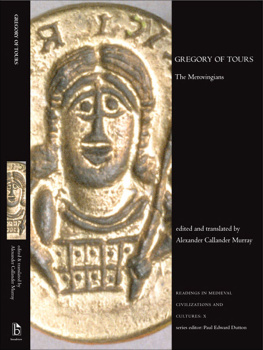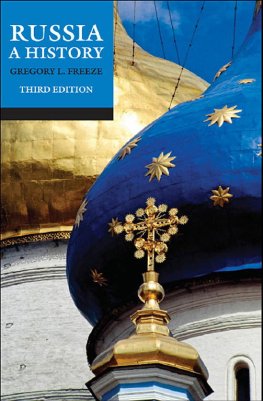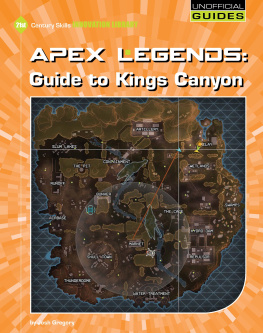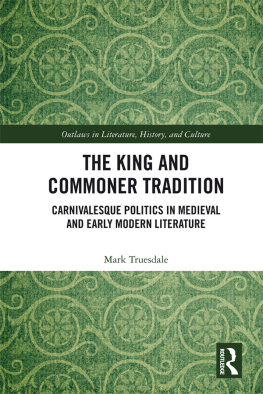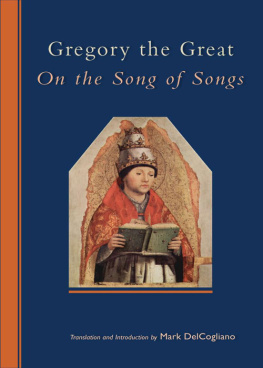GREGORY OF TOURS
READINGS IN MEDIEVAL CIVILIZATIONS AND CULTURES: X
series editor: Paul Edward Dutton
Gregory of Tours
THE MEROVINGIANS
edited and translated by
ALEXANDERCALLANDERMURRAY

2006 Alexander Callander Murray
All rights reserved. The use of any part of this publication reproduced, transmitted in any form or by any means, electronic, mechanical, photocopying, recording, or otherwise, or stored in a retrieval system, without prior written consent of the publisheror in the case of photocopying, a licence from Access Copyright (Canadian Copyright Licensing Agency), One Yonge Street, Suite 1900, Toronto, on m5e 1e5is an infringement of the copyright law.
Library and Archives Canada Cataloguing in Publication
Gregory, Saint, Bishop of Tours, 538-594.
Gregory of Tours : the Merovingians /edited and translated by Alexander Callander Murray.
(Readings in medieval civilizations and cultures; 10)
Includes bibliographical references and index.
ISBN 1-55111-523-9
1. MerovingiansHistorySources. I. Murray, Alexander C., 1946- II. Title. III. Series.
DC65.G74 2005 944.013 C2005-905166-3
Broadview Press Ltd. is an independent, international publishing house, incorporated in 1985. Broadview believes in shared ownership, both with its employees and with the general public; since the year 2000 Broadview shares have traded publicly on the Toronto Venture Exchange under the symbol BDP.
We welcome comments and suggestions regarding any aspect of our publicationsplease feel free to contact us at the addresses below or at broadview@broadviewpress.com.
North America:
PO Box 1243, Peterborough,
Ontario, Canada K9J 7H5
PO Box 1015, 3576 California Road,
Orchard Park, NY, USA 14127
Tel: (705) 743-8990;
Fax: (705) 743-8353
E-mail: customerservice@
broadviewpress.com
UK, Ireland, and continental Europe:
NBN Plymbridge
Estover Road
Plymouth PL6 7PY UK
Tel: 44 (0) 1752 202301
Fax: 44 (0) 1752 202331
Fax Order Line: 44 (0) 1752 202333
Customer Service:
cservs@nbnplymbridge.com
Orders: orders@nbnplymbridge.com
Australia and New Zealand:
UNIREPS,
University of New South Wales
Sydney, NSW, 2052
Australia
Tel: 61 2 9664 0999
Fax: 61 2 9664 5420
E-mail: info.press@unsw.edu.au
www.broadviewpress.com
Broadview Press Ltd. gratefully acknowledges the financial support of the Government of Canada through the Book Publishing Development Program for our publishing activities.
Book design and composition by George Kirkpatrick
PRINTED IN CANADA
CONTENTS
LIST OF ILLUSTRATIONS
. Queen Radegund, having left her husband Chlothar, places the symbols of her worldly rank on the altar and enters the religious life (III 7).
. I have taken care of the favor your sweet self asked of me (IV 3). Chlothar announces to Ingund that he has married her sister Aregund.
. The sons of Chlothar I accompany the body of their father to the basilica of Saint Medard in Soissons (IV 21).
. Venantius Fortunatus recites an epithalamium, or wedding oration, before Sigibert and Brunhild.
. In the end, he had her strangled by a slave, and he himself found the corpse on the bed (IV 28). The death of Galswinth.
. Chilperic views the body of his brother Sigibert (IV 51).
. Changing his clothing for the customary garb of the clergy, he was ordained a priest and sent to the monastery at Le Mans called Aninsola to be instructed in the duties of priests (V 14). Merovechs exile.
. Merovech began to shout that I had no right to suspend him from communion without the consent of our brother bishops (V 14). Merovech confronts Bishops Gregory and Ragnemod.
. The trial of Praetextatus (V 18).
. Guntram Boso, with his daughters, encounters Dracolen (V 25).
. Marcus the referendary announces new taxes in Limoges (V 28).
. The punishment of Limoges (V 28).
. The sons of Chilperic and Fredegund are stricken by the epidemic (V 34).
. I see the sword of divine wrath unsheathed and hanging over this house (V 50). The prediction of Bishop Salvius.
. Taking Priscus gently by the hair, the king said to me, Come, bishop of God, and lay your hands on him (VI 5).
. Gregory reacts to Chilperics poetry (VI 46).
. At Reuil, Fredegund contemplates assassinating Brunhild (VII 20).
. The king bore the body amidst countless candles to its burial site in the basilica of Saint Vincent (VIII 10). Guntram buries Clovis.
. Lets hope the person who dared do this can be pointed out (VIII 31). Fredegund, Beppolen, and Ansovald visit Praetextatus.
. He waited for a cup, and when he received it, drank its mixture of absinthe, wine, and honey (VIII 31).
. Radegund and Agnes entertain Venantius Fortunatus at the monastery of the Holy Cross in Poitiers.
LIST OF GENEALOGIES
. The Early Merovingians: Clovis, his Sons, and Grandsons
. The Early Merovingians: Sigibert I, Brunhild, and their Descendants
. The Early Merovingians: Chilperic I, Fredegund, and their Descendants
. The House of Chlothar I and the Visigothic Monarchy
LIST OF MAPS
. Bishoprics of Gaul
. Gaul in the Sixth Century
. The Division of 561 (cf. Gregory, Hist. IV 22)
. Regions of Gaul and its Neighbors in the Merovingian Period
. West and East on the Death of Theoderic the Great, a. 526
. West and East around the Deaths of Chlothar I (a. 561) and Justinian (a. 565)
ABBREVIATIONS
| a. | anno, annis, in the year(s) |
| ca | circa, around (the year) |
| GC | Gregory of Tours, Liber in Gloria Confessorum. Trans. Raymond Van Dam, Glory of the Confessor (Liverpool, 1998) |
| s.a. | sub anno, under the year |
| MGH | Monumenta Germaniae Historica |
| VM | Gregory of Tours, Libri IV de Virtutibus Sancti Martini. Trans. Raymond Van Dam, in Saints and their Miracles in Late Antique Gaul (Princeton, 1993) |
References to the Histories:
Roman numerals refer to the book numbers, Arabic to the chapter number; IX 2, for example, would be Book Nine, .
PREFACE
Abridging the Histories of Gregory of Tours has a long, and some will think ignoble, history. Gregory gravely anticipated the development. In the last chapter of the Histories, having listed his various writings, he adjured his successors, under threat of having to keep company with the devil at the last judgment, to leave his work intact. As Gregory conceded the privilege of turning selections into verse, his concern may not have been so much abridgement as such as the potential for an epitome to consign the real thing to oblivion. The Histories never found its poet, but not too long after Gregorys death, his history was abbreviated. It was reduced to its first six books, and numerous chapters of an ecclesiastical character excised. The popularity of the epitome seems to have long eclipsed the original. Fredegar in his Chronicle around 660 and the Neustrian author of a History of the Franks (Liber historiae Francorum) around 727 used the six-book epitome, neither aware of the ten-book version that Gregory had feared might suffer diminution. Both authors in turn abbreviated the epitome further in the composition of their own distinctive versions. Fortunately the ten-book version survived, acquiring in the Carolingian period the title
Next page
